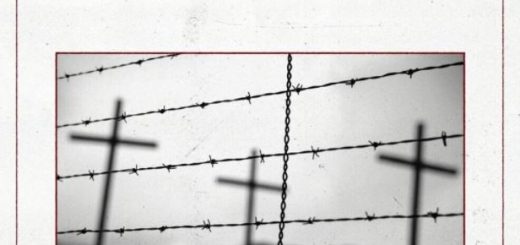Day After Tomorrow by Phoebe Bridgers Lyrics Meaning – Exploring the Depths of Anticipated Homecoming and Sacrifice
Lyrics
And I miss you all so much here
I can’t wait to see you all
And I’m counting the days here
I still believe that there’s gold
At the end of the world
And I’ll come home
To Illinois
On the day after tomorrow
And it’s so hard
And it’s cold here
And I’m tired of taking orders
And I miss old Rockford town
Up by the Wisconsin border
What I’ll miss you won’t believe
Shoveling snow and raking leaves
And my plane will touch down
On the day after tomorrow
I close my eyes every night
And I dream that I can hold you
They fill us full of lies
Everyone buys
About what it means to be a soldier
I still don’t know how I’m supposed to feel
About all the blood that’s been spilled
Will God on his throne
Get me back home
On the day after tomorrow?
You can’t deny
The other side
Don’t want to die
Any more than we do
What I’m trying to say
Is don’t they pray
To the same God that we do?
Tell me, how does God choose?
Whose prayers does he refuse?
Who turns the wheel?
Who throws the dice
On the day after tomorrow?
I am not fighting for justice
I am not fighting for freedom
I am fighting for my life
And another day in the world here
I just do what I’ve been told
You’re just the gravel on the road
And only the lucky ones come home
On the day after tomorrow
And the summer
It too will fade
And with it brings the winter’s frost, dear
And I know we too are made
Of all the things that we have lost here
I’ll be twenty-one today
I’ve been saving all my pay
And my plane will touch down
On the day after tomorrow
And my plane, it will touch down
On the day after tomorrow
Phoebe Bridgers’s rendition of ‘Day After Tomorrow’ carries with it an air of reflective solemnity, rich with the nuanced tapestry of both hope and poignant resignation. As a haunting ballad in its own right, the piece reverberates with the human cost of war and the anticipation of a homecoming that might never come.
Stripping away the gallantry and romanticism often associated with military service, Bridgers brings us face to face with the raw humanity of those caught within its grasp. Her evocative voice serves as a vessel for a story that is simultaneously intimate and universal, touching on themes of duty, survival, love, and the turmoil of the soul amidst conflict.
A Soldier’s yearning—Bridgers’ Lamentation
Borrowing the gentle strums of a folk ballad, Bridgers wraps the listeners in the cloak of a soldier’s innermost thoughts—a narrative weaving longing and love with the stoic acceptance of duty. The opening lines ‘I got your letter today’ serve as a conjuring of spirits, invoking the presence of loved ones in their absence, tugging at the heartstrings with the tender ache of separation.
As she expresses her pining for familiar surroundings, ‘And I miss old Rockford town, up by the Wisconsin border,’ we not only hear her words but also feel them, a testament to her vivid lyricism and capacity to pull listeners into a soldier’s homesick world.
Unveiling the Bitter Truth of Service
Amidst the resonant strings, Bridgers does not shy away from exposing the grim realities faced by soldiers—casting light on the often unsaid struggle, ‘it’s so hard, and it’s cold here, and I’m tired of taking orders.’ It’s a silent scream against the notions glamorizing war, revealing a vulnerability that challenges the listener to reassess their own understanding of military valor.
Her words ‘I just do what I’ve been told, you’re just the gravel on the road’ echo with the dehumanizing aspect of warfare and the futility of fighting, encapsulating a theme of individual sacrifice swallowed by the larger machinations of conflict.
The Hidden Meaning: Gods and Dice in the Theatre of War
Bridgers tactfully delves into a contemplation of fate and divine will with lyrical inquiries like, ‘Tell me, how does God choose? Whose prayers does he refuse?’ There is a sense of existential searching and moral conflict interlaced with religious iconography, prompting listeners to confront the chaos and chance that often dictates the outcome of war and life itself.
The metaphor of the almighty rolling dice is striking, juxtaposing the randomness of survival against the backdrop of a supposed divine plan. In her soft, yet potent delivery, Bridgers confronts the sacrilege in the act of war and the precarious tightrope walked by those deemed soldiers.
Chasing ‘Gold’ or Grasping at Straws?
Intertwining the dreams of a better future with the harshness of present circumstances, Bridgers crafts a complex emotional dynamic within the song. The notion of ‘gold at the end of the world’ serves as a double entendre that speaks to the undying hope for reward as well as the acknowledgement of a pursuit that may lead to a dead end—a journey fraught with peril and possibly devoid of the promised treasures.
This quest for ‘gold’ may not be one of avarice but of an earnest desire for peace and normalcy. Yet the reality of such a pursuit leads to reflections on what is lost, and what is gained, in the shadows of want and war.
Memorable Lines Cutting to the Core of Existence
‘And I know we too are made of all the things that we have lost here.’ Bridgers channels a profound, almost spiritual insight into the human condition with these words. They resonate as a summary of the song’s overarching theme: life as an accumulation of moments and memories that both shape and scar us.
With a simple but devastating declaration of age, ‘I’ll be twenty-one today,’ Bridgers brings the youthful face of soldiers into sharp focus, reminding us that beneath the mantle of war lies the fragility of just having stepped into adulthood. The song closes with a bittersweet promise, a hope to rejoin the world left behind, articulated through the echo of an anticipated arrival, ‘And my plane will touch down on the day after tomorrow.’ It’s a somber yet powerful reminder of the often uncertain horizon that awaits those who serve, cling to hope, and ultimately, seek homecoming.








